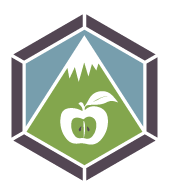What can one farm do?
Kollreid has shown us that living a good life does not have to be at the expense of the coming generations.
Our mission is one hand to manage this piece of land in a way that keeps it healthy for generations to come. On the other hand, we want to offer our guests a place where they can connect with nature. Still, let’s be honest. When humans interact with nature, there is already a disturbance factor playing a certain role. So also we are not perfect, but what we can say for ourselves is that we are aware of that our choices do have an impact on our environment, so we aim to make our decisions mindfully according to our latest state of knowledge.
For us, this means taking an active role in preserving biodiversity and to implement circular solutions in our business that contribute to the wellbeing of humans and animals without harming our planet. For instance, we keep a low amount of farming animals on a relatively large area to make sure that the land areas can regenerate and stay healthy. We practise alpine transhumance on our pastures and farm, honouring a seasonal circularity to keep our soil healthy and promote biodiversity on the pastures. Moreover, we plant a variation of different kinds of trees and bushes, especially old species, to fight against monoculture in our landscape. Our special focus goes to the fruit tree Malus Sieversii. This is a wild apple tree that has been shown to be the ancestor to most cultivars of the domesticated apple tree. We actively work to promote this species as we think it is essential to preserve and support plants that have better chances coping with a changing, challenging environment than some of the domesticated species. You can read more on that on our webpage under “Malus Sieversii”.
Also, we only rely on renewable sources of energy coming from solar technologies and our own wood (aiming to decrease our use of the latter). Solar is a great solution up here since we live on the southern slopes and have plenty of sunny days all year round. To improve the nature impact of our guesthouse, we only rely on eco-friendly cleaning products. We encourage having groups of people renting the house for longer times at once, because this decreases the amount of logistics linked with travelling to this location.
What we also do is promote areas such as healthy, natural food and an active lifestyle. The guests at our farm have the possibility to co-learn and contribute in our mission to preserve healthy lands – because we all play a part in this. We wish that Kollreider Hof can raise some awareness of the impacts of our modern lifestyles and inspire people to find a closer connection to themselves and the nature.
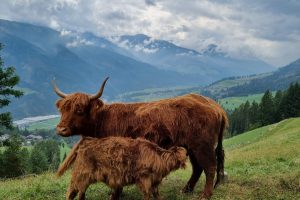
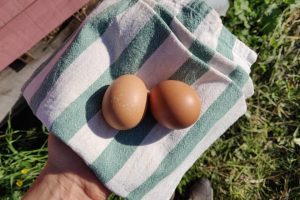
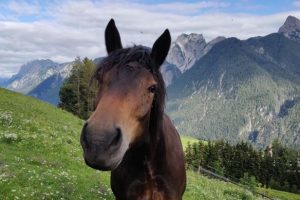
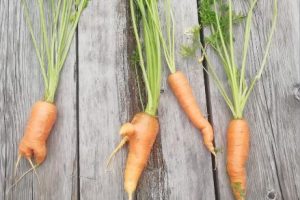
Local animals
We use our horses for farm work and the joys of riding. They spend the summer on the alpine pasture and the rest of the year on our pastures or in the open stable.
The Sulmtaler chickens are an old livestock breed which are suitable for eggs as well as for meat. The eggs are available for our guests.
As an extensive breed, the Scottish Highland cattle are well suited for our land. A rather light cattle, which can also be kept with us all year round in free-range husbandry.
